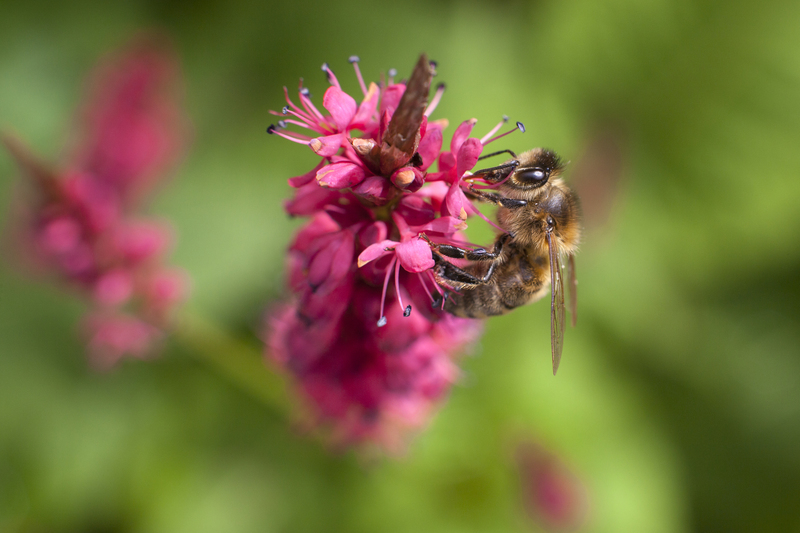Beginner's Guide: 9 Critical Tips for a Flourishing Garden
Posted on 28/08/2025
Beginner's Guide: 9 Critical Tips for a Flourishing Garden
Gardening is a rewarding and enriching hobby that brings you closer to nature, beautifies your surroundings, and can even save you money and nourish your body. For those looking to cultivate a flourishing garden, embarking on this journey can be both exciting and overwhelming. In this comprehensive guide, we'll share 9 critical gardening tips for beginners to help your plants thrive season after season. Whether you're dreaming of vibrant blooms or a bountiful vegetable patch, this beginner's guide to a successful garden will set you up for success.
1. Choose the Right Location for Your Garden
The foundation of a healthy, thriving garden is the location you select. Sunlight, drainage, and protection from harsh weather are all key. Most vegetables and flowers need at least six hours of sunlight daily. Observe your yard or balcony throughout the day and pick a spot where plants will bask in sunshine without being exposed to excessive wind or flooding.
- Sunlight: Most edible plants need full sun, while some flowers and leafy greens can tolerate partial shade.
- Drainage: Avoid areas where water pools after rainfall; poor drainage can rot roots.
- Convenience: Choose a spot near a water source and easily accessible for daily care.

2. Understand Your Soil for a Healthy Garden
Soil health is the very heart of a flourishing garden. You can't grow vibrant plants in poor soil. Start by determining your soil type - sandy, clay, silt, or loam - and learn what your plants need.
- Soil Testing: Use a home soil testing kit or contact your local extension service to analyze pH and nutrient levels.
- Enhance with Organic Matter: Add compost, well-rotted manure, or other organic material to improve fertility and texture.
- Adjust pH: If needed, amend the soil with lime (to raise pH) or sulfur (to lower pH), depending on your plants' preferences.
A well-prepared soil bed promotes robust root growth, better water retention, and improved nutrient availability--all critical for a lush, healthy garden.
3. Start with Easy-to-Grow Plants
As you embark on your gardening journey, set yourself up for success by choosing resilient and low-maintenance plants. Don't rush into growing delicate or high-maintenance species. Instead, opt for tried-and-true favorites.
- Vegetables: Radishes, lettuce, tomatoes, and green beans are ideal for beginners.
- Flowers: Marigolds, sunflowers, petunias, and zinnias provide instant color and are easy to grow.
- Herbs: Basil, chives, oregano, and mint adapt easily and are useful in the kitchen.
These reliable choices boost your confidence and ensure your first experience with your flourishing garden is a positive one.
4. Master the Art of Proper Watering
Proper watering is a delicate balance that often makes the difference between a thriving and a struggling garden. Both under-watering and over-watering can harm plants.
- Frequency: Most gardens need about 1 inch (2.5 cm) of water per week. Adjust during hot, dry weather.
- Timing: Water early in the morning or late in the evening to minimize evaporation and help plants absorb moisture.
- Method: Direct water at the base of the plants to avoid wetting foliage, which can encourage disease. Use soaker hoses or drip irrigation for efficiency.
Remember: Consistent, deep watering encourages strong root systems and a more resilient garden ecosystem.
5. Feed Your Plants: Fertilize Smartly
Plants need more than just water and sunlight. Regular feeding ensures plants get crucial nutrients, helping your garden flourish.
- Organic vs. Synthetic: Organic fertilizers release nutrients slowly and foster long-term soil health. Synthetic fertilizers offer a quick nutrient boost, but can cause buildup over time.
- Timing: Feed your plants during active growth phases--usually spring and midsummer for most species.
- Don't Overdo It: Too much fertilizer can burn roots or encourage excessive leafy growth at the expense of blooms or fruit.
Tip: Use compost and mulch to gradually enrich the soil, create a living ecosystem, and reduce the need for synthetic products.
6. Mulch Matters: Control Weeds and Retain Moisture
Mulching is a secret weapon for a thriving garden. It suppresses weed growth, preserves soil moisture, and evens out soil temperature to keep plant roots healthy.
- Organic Mulch: Straw, shredded leaves, wood chips, or grass clippings break down and feed the soil.
- How Much: Apply a 2- to 3-inch (5-8cm) thick layer, avoiding piles against stems to prevent rot.
- When to Mulch: Best applied in spring, once the soil has warmed up, or immediately after planting.
By cutting down on weeding chores and maintaining soil moisture, mulch makes it easier for beginners to cultivate a lush, productive backyard.
7. Control Pests and Diseases Naturally
Every flourishing garden faces its share of challenges from pests and diseases. Developing an integrated pest management strategy keeps your garden healthier without harming beneficial insects.
- Inspect Regularly: Check your plants weekly for signs of trouble: holes in leaves, unusual spots, or insects.
- Handpick and Remove: Pick off larger pests or cut off diseased leaves before the problem spreads.
- Encourage Beneficial Insects: Ladybugs, lacewings, and bees help keep harmful insects in check.
- Organic Solutions: Soap sprays, neem oil, or companion planting can control pests without chemicals.
Early intervention and observation are key to keeping your backyard garden lush and healthy.
8. Prune and Deadhead for Stronger Growth
Pruning and deadheading encourage healthy growth, more blooms, and better airflow. Removing spent or diseased stems ensures energy goes toward the most productive parts of the plant.
- Pruning: Thin out crowded stems and branches to prevent disease and increase sunlight penetration.
- Deadheading: Snip off faded blooms regularly to encourage new flowers and keep the garden looking tidy.
- Know Your Plants: Research specific needs, as some flowers or shrubs prefer to be cut back at certain times of year.
Routine maintenance will reward you with a beautiful, vibrant garden that flourishes all season long.
9. Patience and Observation: The Gardener's Superpowers
Above all else, successful gardening requires patience, curiosity, and a willingness to learn. Nature doesn't hurry, and the best gardens develop over time.
- Observe: Watch how weather, soil, and insects influence your plants each week. Take notes!
- Learn from Mistakes: Every gardener faces setbacks; use them as learning opportunities.
- Celebrate Growth: Enjoy watching your garden evolve from seedling to harvest, regardless of size.
With attentive observation and gentle care, your garden--no matter how small--will become a flourishing oasis.
Bonus Tips for a Truly Flourishing Garden
- Embrace Crop Rotation: Vary planting locations to prevent soil depletion and break pest cycles.
- Keep a Garden Journal: Note planting dates, varieties, successes, and lessons for future seasons.
- Join a Community: Connect with local gardeners, clubs, or online forums for ideas and support.

Frequently Asked Questions about Starting a Flourishing Garden
What is the easiest garden to start for beginners?
Container gardens or raised beds are ideal for novices. They allow you to control soil quality, are easier to manage, and typically produce lush growth with less effort.
How often should I water my new garden?
Check the top 2-3 inches of soil. If it's dry to the touch, water thoroughly. Early mornings are best for avoiding evaporation and mildew.
What can I do to improve heavy clay or sandy soil?
Add organic matter like compost, leaf mold, or aged manure annually. Over time, this will transform even poor soils into a rich, living foundation for a vibrant garden.
How do I keep pests away without chemicals?
Encourage natural predators, use physical barriers like row covers, and apply organic deterrents such as neem oil or insecticidal soap. Introduce companion planting by mixing pest-repellent herbs with your chosen plants.
Conclusion: Your Gardening Journey Begins Here
Creating a flourishing garden for beginners is within anyone's reach with the right tips and mindset. Remember, gardening is a continuous learning process. Each season offers new discoveries and joy as you cultivate edible plants or colorful blooms. Embrace the journey, celebrate every success--big or small--and watch as your effort transforms into a green oasis right at your doorstep.
With these 9 critical garden tips and your growing knowledge, expect a vibrant, healthy, and flourishing garden for seasons to come. Happy gardening!
Latest Posts
A beginner's guide to container gardening
Ultimate Must-Have Gardening Tools for Passionate Gardeners
Affordable and Easy Garden Tips for Low Maintenance



